TIFF Quickies: 45 Years, Invisible, The Witch, and more...
 Sunday, September 20, 2015 at 12:00PM
Sunday, September 20, 2015 at 12:00PM 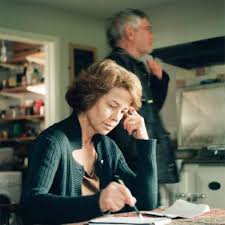 Five quick takes because otherwise I won't get around to writing about these! Grades are not binding and these are first quick impressions.
Five quick takes because otherwise I won't get around to writing about these! Grades are not binding and these are first quick impressions.
45 Years (UK, Andrew Haigh)
That sound you hear over a black screen as the film opens is a slide projector. If it hadn't been for Mad Men's Carousel that long defunct sound might not have been so easy to place. The slides will be important later on but to quote that famous episode:
This is not a spaceship, it's a time machine. It goes backwards and forwards, and it takes us to a place where we ache to go again."
Don Draper's famous monologue could well be a description of this film, too. The past suddenly rushes forward into the present via a letter bearing strange news and the husband (Tom Courtenay) aches too visibly to go back to it as the wife (Charlotte Rampling) slowly begins to reframe their lives between then and now. In his very short film career Andrew Haigh has shown a remarkable skill at romantic drama through the prism of time (the impactful of the moment and the brevity of a Weekend, and the half century of a marriage through recalled feeling). The film is cooly mounted, not just in its color palette and the weather but in its chill vibe; nothing at all is really happening but everything is being considered and reframed. 45 Years opens on December 23rd - Sundance Selects is apparently trying the exact same play they did for Marion Cotillard last year for Charlotte Rampling. Let's hope it works because she rises exquisitely to this film's challenge. A-
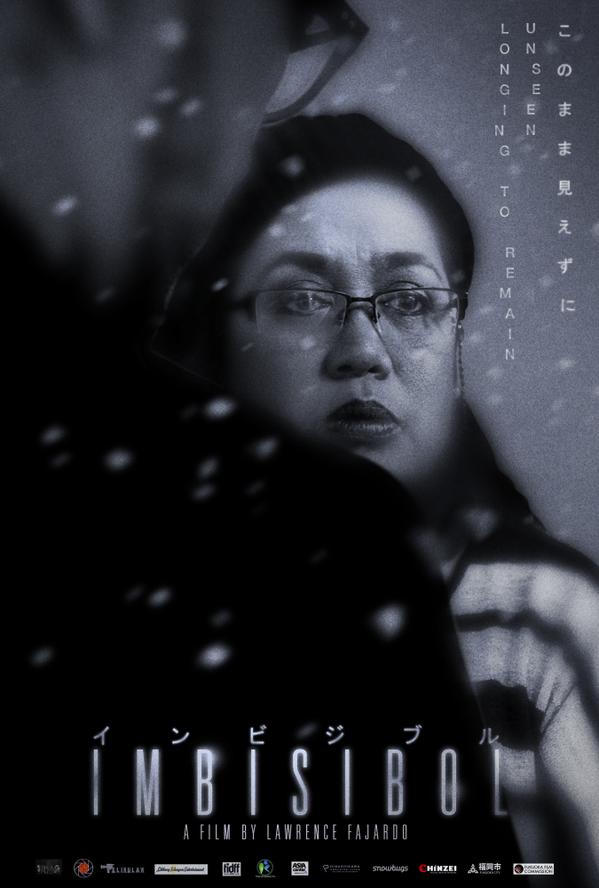 Invisible (The Philippines, Lawrence Fajardo)
Invisible (The Philippines, Lawrence Fajardo)
The first scene in Invisible focuses on a steam pot that's getting ready to blow as we hear a conversation offscreen. That's a non too subtle way to announce a slow simmering drama ahead but typical of the visual strategy of placing a camera in one place and just watching, even when there's little to see. Fajardo looks at the plights of Filipino immigrants in Japan with both tenderness and hopelessness in these interconnected stories. Aunt Linda () ties the stories together as a landlady who permits illegals to rent her apartments -- she is not an illegal as she has been married for decades to a Japanese man -- but her heart is still with the Filipino immigrant community who she checks in with regularly.
Among the stories is a middle aged gay romance, a sad hustler aging out of good paychecks and starting to look pathetic in the stage shows with his young twink competition, and a hardworking young man who runs into dangerous trouble with a coworker. I really wanted to love this picture. It's heart is in the right place and certain scenes have distinct empathetic pleasures. But the director, who admitted in a Q&A afterwards that he was trying to convey the drudgery of these lives, does that too well. The pace is excruciating in the way only art films can be when they aren't careful about when to hold a shot and when to let one go since there's actually no scene there. B-/C+
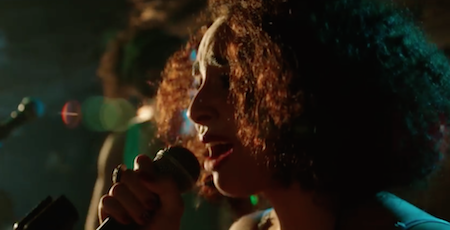
As I Open My Eyes (Tunisia, Leyla Bouzin)
I believe this is the first Tunisian film I have seen and I was often at a loss for exactly what was happening. To explain: the plot is easy enough to follow but the politics are not. Set during the Arab Spring this sensitive picture circles a young woman who is due to start medical school but just wants to sing for her band. The band is continually warned that they're in trouble with the police -- but they each have different ideas about what they can get away with -- but listening to their lyrics I could never suss out exactly why they were so threatening. The music is a major selling point and the young star is lovely though I wish the concert scenes and the camerawork had not been so repetitive from a visual standpoint -- the star's innocent but flirtatious smile is totally endearing but there are a thousand closeups of it. The combative but loving mother/daughter relationship which starts as the subplot and gradually takes over is unexpectedly compelling by the melancholy older-but-wiser end. B
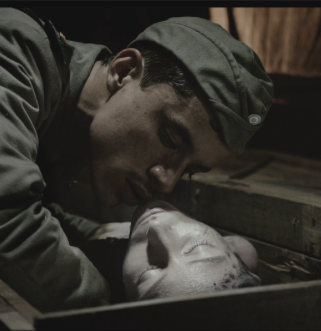 Eva Doesn't Sleep (Argentina, Pablo Agüero)
Eva Doesn't Sleep (Argentina, Pablo Agüero)
Finally a movie for Argentinian Politics Majors who are also Necrophiliacs!
What did I just watch? I think it was good --- possibly very good though it's unpleasant. This brilliantly titled film was among the most challenging films at the fest. Agüero presents a stylized history of Argentinian politics from the 1950s onward through the much-fetishized dead body of Eva Peron and the various men in charge who are defeated by both her memory and their inability to rid the country of her body. It's rare to see a film so fully embrace the POV of its villains -- the various narrators, dictators, politicans, soldiers and so on are nearly all misogynists who hate Evita (you hear "that bitch" more times than you'll be able to count) and despise the working classes who adore her. Some scenes go on interminably but many of the images have a weirdly hypnotic resonance and willfully begin or end in abstraction from lighting (particularly in Gael Garcia Bernal's segment), color (particularly in the Embalming sequence) or Denis Lavant (particularly in the Denis Lavant scene).
Grade: WTF
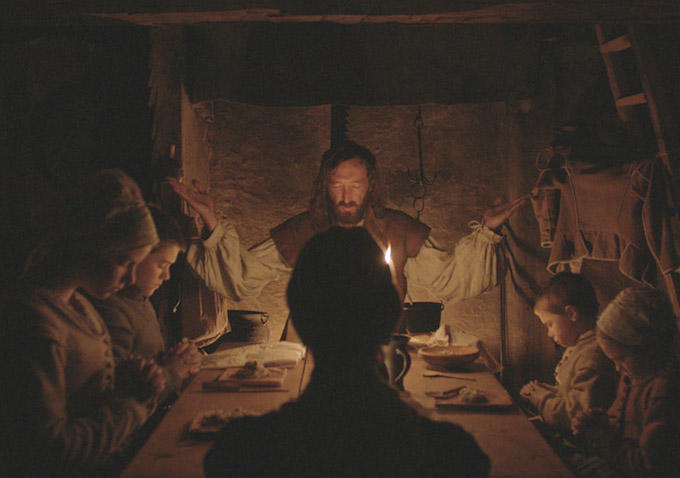
The Witch (Robert Eggers)
If you've managed to stay blind and deaf to this film's content, stay that way. Do not read this blurb because it's best to go in cold. The Witch takes place in the 17th century when a Puritan couple, banished from their village community in New England, seek to begin anew. They build a home and farm in the clearing near a heavy wood for their goats, chickens, and four children. Almost immediately an unthinkable tragedy strikes. Debuting director Robert Eggers is supremely confident with the slow build even though he has the nerve to reveal the culprit immediately and then make you wait. Though some of the scenes are predictable once you're inside them, by then the film already has you frozen in your seat with its commitment to the unfortunate collision of Pious, Ignorant, Paranoid Christians and Terrifying Unfathomable Evil. It's hard to describe how spectacularly creepy and perverse it all feels in the last half hour. What a ballsy debut! A-


